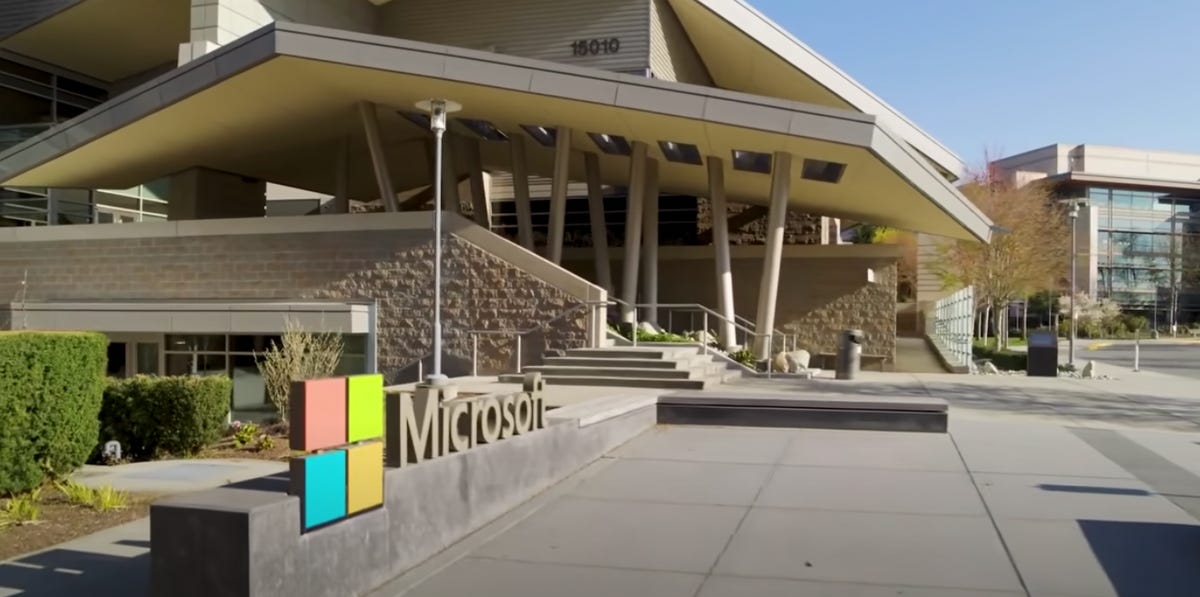[ad_1]

One big farm?
Screenshot by ZDNet
Management? Who needs it?
This has become a popular thought ever since the pandemic struck and working from home became the new way of life.
Many of the essences of management were tossed to the wind. Employees were left to their own devices and at least some felt liberated.
Some managers reacted by spying on their employees. Others by plaintively crying that they were unable to manage because they didn’t have the resources or because they felt they’d simply lost their influence.
Those plaintive tears were heard by Microsoft, as the company continued to research the implications of remote work or its apparent successor, the hybrid model.
For its part, Microsoft believes managers should think differently about their employees. They should think of them as, oh, crops.
Yes, dear manager, you are a farmer and your employees are wheat, barley, and corn.
I judge this from a stimulating post on Microsoft’s site, one that had me looking out into the fields and contemplating.
Microsoft, you see, mused: “Just like a field of soybeans, workers need breaks to allow their internal nutrients—especially those that spark creativity and innovation — to recuperate.”
I’m not sure how your average engineer might react to being compared to a soybean. I fear they might rise up and declare this to be a heinous microaggression.
They may struggle with the idea that they’re just crops in a field, there to be maximally squeezed.
But let’s assume Microsoft has at least part of its heart in a good place.
The idea — some of the thinking comes from the work of Dr. Kaitlin Mattos at Fort Lewis College — seems to be that, just as with crops, managers should be trained to realize when their croppy employees need a break and give them time away.
“Leaders should train managers to make sure direct reports take vacation days and limit weekend work, as well as check in on employees perennially working late,” says the post.
Managers need training to do this? They usually leave their humanity in bed and exercise their duties with utter ruthlessness?
Doesn’t one of the best managerial skills revolve around knowing your team and understanding (at least a little of) their lives, as well as their work?
Yet here is Microsoft conceding that thinking of your employees like sensitive crops isn’t a natural process for managers.
“While it might be difficult to convince them that they should ask for less from their staff,” says Microsoft. “in the long run, it will bolster the bottom line.”
Ah, so you shouldn’t give employees a break because they’re clearly exhausted. You should give them a break because that’s what’ll get you the best price for your crop.
Well, whatever gets through to your suddenly frustrated managers, I suppose.
I can believe, indeed, that many managers prefer to squeeze as much as they can out of every employee, while they can. Especially in a climate where people are changing jobs more frequently.
The additional layer of feelingless rationality that technology has injected into every business — “but the data says…” — has perhaps nudged managers even further toward a results-obsessed perspective.
Put pressure on them, and they’ll have to perform.
Yet, as Microsoft points out, the Great Resignation indicates that many employees have a limit and that’s been exceeded for far too long.
There’s one more delicious aspect to Microsoft’s environmental sustainability analogy.
“Fertilizer is often used as a shortcut to reap the most from the soil,” reminds Microsoft. I so wanted the next part to be about managerial bullexcreta and its deep ineffectiveness.
Instead, Microsoft veered troublingly to this: “Similarly, it can be tempting to mollify burned out employees through small rewards, like bringing scones to the morning meeting. While those gestures can help, they shouldn’t be the sole way managers fight burnout.”
Scones are fertilizer.
Sometimes, you can take these analogies a little too far.
[ad_2]
Source link

